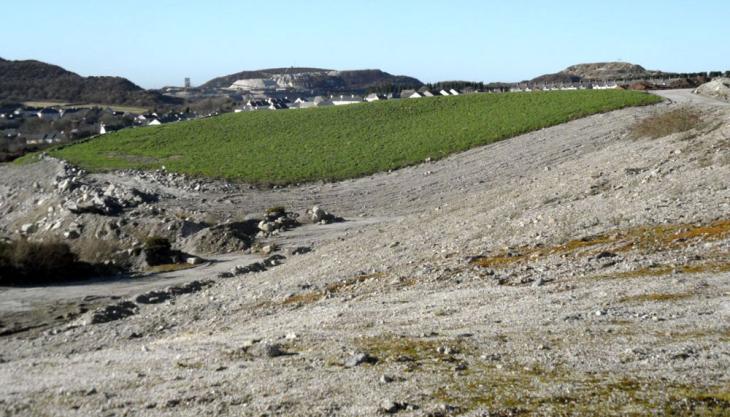Greening the china clay tips

Imerys and 4R Recycling utilize organic waste material to significantly enhance restoration activities
IMERYS Minerals Ltd and 4R Recycling Ltd, part of the 4R Group, have been working together in Devon and Cornwall for the last three years to develop innovative processes that will enhance the industrial minerals firm’s long-established ongoing programme of restoring its china clay sites.
4R provide expertise in soil science and have many years of experience in the restoration of colliery spoil tips in northern England, which, coupled with Imerys’ global experience and expertise, has resulted in significant advances in restoration techniques.
Imerys incorporate a mixture of organic materials, supplied by 4R from regional producers, into their restored areas and use them to create soils where none exist. These materials would otherwise be disposed of as waste in landfill, treated chemically or incinerated.
The materials used include, among others, biosolids, wood chips, plasterboard gypsum, compost and marine dredgings. 4R’s technical team assesses the quality of the materials and the potential beneficial land-recycling options for all the different combinations.
Mike Holt, managing director of 4R Group, said: ‘We continue the search for innovative new materials to use in restoration, such as wool-rich carpet waste as a soil conditioner or as mulch mats in tree planting schemes around restoration sites. Our aim is to provide a cost-effective and environmentally sound solution to land restoration.’
In Devon, the Lee Moor restoration project is well advanced with 20ha now greened up, including a mixture of grassland and woodland. Meanwhile, in Cornwall, there are currently two areas near St Austell where these organic waste materials are being used to aid restoration. The Dubbers tip (pictured), which overlooks the village of Nanpean, is now partly restored and has already received positive comments from the local community.
According to Imerys, restoring these sites has additional environmental benefits. Plants growing in a newly created soil reduce the amount of erosion that can occur in heavy rain, thus reducing run-off into the surrounding ditches, streams and rivers. Also, the new growth of plant matter on bare sites absorbs significant amounts of carbon dioxide from the air (approximately five or six tonnes per hectare per year).
Chris Varcoe, mineral services manager with Imerys Minerals Ltd, said: ‘Imerys are committed to restoring their china clay sites in a sustainable manner. Using organic ‘waste’ in this way allows us to significantly enhance our restoration activities. We also provide local authorities and businesses in the South West with local, long-term recycling outlets for their organic by-products.’



